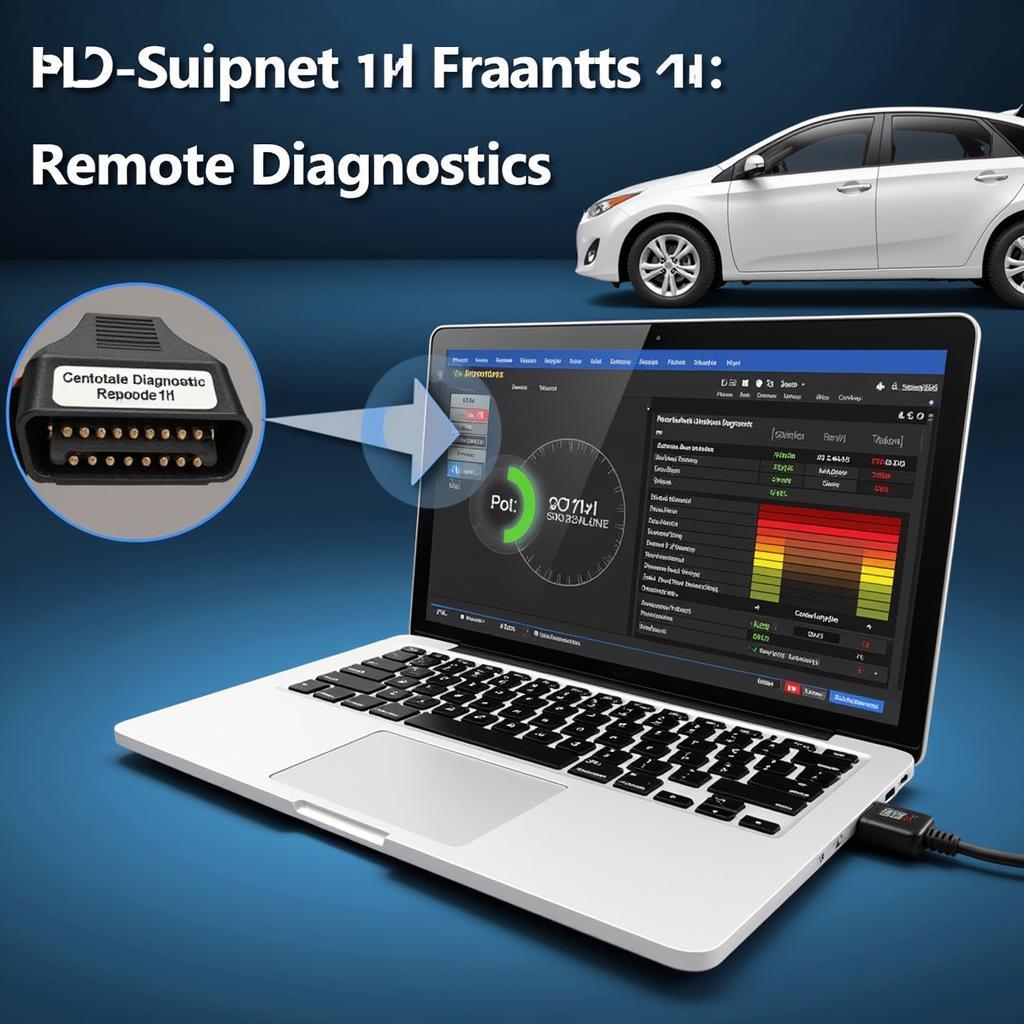Seeing a brake fluid warning light in your Toyota can be a bit alarming. It’s a sign that something isn’t quite right with your braking system, and it’s essential to address it promptly. This guide will explain everything you need to know about the brake fluid warning light, including its causes, how to diagnose the problem, and what solutions you can consider.
Understanding the Brake Fluid Warning Light
Your Toyota’s brake fluid warning light is a vital safety feature. It illuminates on the dashboard to alert you to low brake fluid levels in your brake system. Brake fluid is a critical component in your vehicle’s braking system, as it transmits pressure from the brake pedal to the calipers, slowing your car down. If the brake fluid level drops too low, your braking system might not function as effectively.
Causes of the Brake Fluid Warning Light
The brake fluid warning light in your Toyota can be triggered by several different causes, including:
- Low Brake Fluid Level: This is the most common reason for the warning light to come on. Brake fluid can leak from various points in the braking system, such as the brake calipers, wheel cylinders, hoses, or master cylinder.
- Brake Fluid Contamination: Over time, brake fluid can become contaminated with moisture, causing it to deteriorate and lose its effectiveness. This can trigger the warning light.
- Master Cylinder Failure: The master cylinder is a crucial component responsible for distributing brake fluid to the wheels. A damaged or malfunctioning master cylinder can cause a leak or prevent proper fluid distribution, activating the warning light.
- Leak in Brake Lines: The brake lines carry brake fluid from the master cylinder to the wheel cylinders. A leak in these lines can result in low brake fluid levels and trigger the warning light.
- Faulty Brake Fluid Level Sensor: The brake fluid level sensor, typically located in the master cylinder reservoir, measures the fluid level. If this sensor malfunctions, it might falsely indicate a low fluid level, causing the warning light to illuminate.
Diagnosing the Problem
To accurately diagnose the cause of your Toyota’s brake fluid warning light, it’s best to consult a professional technician at a reputable auto repair shop. They have the tools and expertise to diagnose the problem quickly and efficiently. Here’s a general overview of the diagnostic process:
- Visual Inspection: The technician will visually inspect the braking system for any visible leaks or signs of damage.
- Brake Fluid Level Check: They will check the brake fluid level in the master cylinder reservoir and examine the fluid’s condition for signs of contamination.
- Brake Pedal Test: The technician will press the brake pedal to assess its responsiveness and feel for any unusual pressure or resistance.
- Diagnostic Scan: If necessary, the technician will use a diagnostic scanner to check for any error codes related to the brake system.
Solutions for a Brake Fluid Warning Light
The appropriate solution for your Toyota’s brake fluid warning light will depend on the cause of the problem. Here are some common solutions:
- Refill Brake Fluid: If the problem is simply low brake fluid, the technician will top up the reservoir with fresh brake fluid.
- Repairing Leaks: If a leak is detected, the technician will locate and repair the source of the leak, which may involve replacing damaged components like brake hoses, calipers, or wheel cylinders.
- Replacing Master Cylinder: If the master cylinder is faulty, it will need to be replaced.
- Flush Brake Fluid: To prevent future issues, the technician might recommend a complete brake fluid flush to remove any contaminated fluid and replace it with fresh fluid.
Tips to Prevent Future Brake Fluid Issues
Here are some tips to help prevent future problems with your Toyota’s brake fluid warning light:
- Regularly Check Brake Fluid Level: Check the brake fluid level in the master cylinder reservoir at least once a month.
- Change Brake Fluid: Flush and replace the brake fluid every two to three years, or as recommended in your Toyota’s owner’s manual.
- Inspect for Leaks: Visually inspect the braking system regularly for any leaks or signs of damage.
- Address Issues Promptly: If you notice any changes in your braking performance, such as a soft pedal or unusual noises, take your Toyota to a technician for inspection immediately.
FAQs About the Brake Fluid Warning Light
1. Is it safe to drive my Toyota with the brake fluid warning light on?
It is generally not recommended to drive your Toyota with the brake fluid warning light on. However, if the light has come on due to a minor issue like a slight leak, you might be able to drive cautiously for a short distance to a nearby auto repair shop. But, if the light is flashing or accompanied by other warning signs, you should stop driving immediately and have it inspected by a technician.
2. How much does it cost to fix a brake fluid leak?
The cost of fixing a brake fluid leak can vary depending on the source of the leak and the complexity of the repair. However, it’s typically a fairly straightforward repair that should not be overly expensive.
3. How long does it take to fix a brake fluid warning light?
The time needed to fix a brake fluid warning light can vary depending on the cause and complexity of the repair. A simple fluid refill might take only a few minutes, while a more extensive repair, such as replacing a leaking caliper, might take several hours.
4. Can I add brake fluid myself?
It is possible to add brake fluid yourself, but it’s not always recommended, especially if you’re not familiar with your vehicle’s braking system. If you’re unsure about adding brake fluid, it’s best to have it done by a professional.
5. Why is my brake fluid level low?
The most common reason for a low brake fluid level is a leak in the braking system. Leaks can occur at various points, such as the calipers, wheel cylinders, hoses, or master cylinder.
6. What happens if I don’t fix my brake fluid leak?
If you don’t fix a brake fluid leak, the fluid level will continue to drop, eventually leading to a complete loss of braking power. This can be extremely dangerous and could result in an accident.
7. Is there a DIY fix for a brake fluid warning light?
There are some basic things you can do yourself to try and diagnose the problem, such as checking the brake fluid level and looking for visible leaks. However, for most repairs, it’s best to consult a professional technician to ensure the job is done correctly and safely.
Conclusion
A brake fluid warning light in your Toyota is a serious issue that requires prompt attention. It’s essential to understand the potential causes, diagnose the problem properly, and have it repaired by a qualified technician. By addressing the issue promptly, you can maintain your vehicle’s safety and ensure that your brakes are always in optimal working condition.


